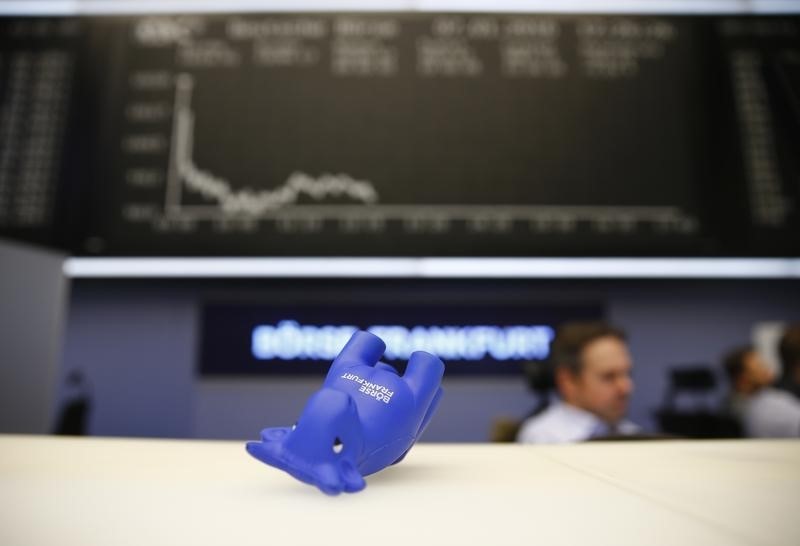By Peter Nurse
Investing.com - European stock markets traded sharply lower Thursday, amid concerns of the U.S. Federal Reserve tapering its bond-buying program this year, even as the world economy loses momentum.
At 4 AM ET (0800 GMT), the DAX in Germany traded 1.5% lower, the CAC 40 in France fell 2.3% and the U.K.’s FTSE 100 dropped 1.8%.
A slump in commodity prices led mining and oil firms to trade sharply lower, with mining firm Anglo American (LON:AAL) stock down 10% - although over half of that was due to it going ex-dividend, Rio Tinto (LON:RIO) stock, Antofagasta (LON:ANTO) stock and BP (NYSE:BP) stock all down over 4%.
European markets received a weak handover from Wall Street, with the Dow Jones Industrial Average and the S&P 500 falling over 1%, after the minutes of the July Federal Reserve meeting showed that most policymakers believe it could be appropriate for the central bank to start reducing bond purchases this year.
Concerns are growing that the reining in of the Fed’s pandemic-era stimulus measures could occur just as the global economic recovery is showing signs of stalling, as countries take measures to combat the spread of the delta variant of the Covid-19 virus.
The travel and leisure index also slumped amid a surge in cases of the delta variant of the coronavirus. IAG (LON:ICAG), the owner of British Airways, stock fell 2.2% and holiday company Tui (DE:TUIGn) stock fell 1.8%.
AstraZeneca (NASDAQ:AZN) stock fell 1% after the chief executive of the drug maker, Pascal Soriot, was named Britain's highest paid company boss in 2020, despite criticism of his handling of the pandemic response. The company was the only one of the major drugmakers to agree to sell its Covid-19 vaccine at cost price, but poor communications during the drug's development, manufacturing bottlenecks and a slightly lower efficacy than some rival vaccines have caused the company significant reputational damage.
Volkswagen (DE:VOWG) stock fell 2.2% after the German carmaker said it may need to cut production further due to a semiconductor supply bottleneck. All carmaker stocks had opened weakly after Toyota Motor (NYSE:TM), widely seen as the most adept manager of supply chains in the business, said it may have to slash production in September due to chip shortages and Covid-driven plant closures, notably in Thailand.
There’s little in the way of tier one economic data in Europe Thursday, so most eyes will be on the release of the weekly jobless claims data in the U.S., an important guide on the state of the country’s labor market.
Elsewhere, oil prices fell Thursday, as a surprise increase in U.S. gasoline inventories suggested the spread of the delta coronavirus variant was weighing on fuel demand.
The U.S. Energy Information Administration reported late Wednesday a draw in crude oil supplies of over 3 million barrels in the week to Aug. 13, but it was the 696,000-barrel build in gasoline supplies, the first increase in more than a month, that had the biggest impact on sentiment.
By 4 AM ET, U.S. crude futures traded 2.8% lower at $63.38 a barrel, falling below $65 for the first time since May, while the Brent contract fell 2.4% to $66.58.
Additionally, gold futures fell 0.1% to $1,783.50/oz, while EUR/USD traded 0.2% lower at 1.1683.
